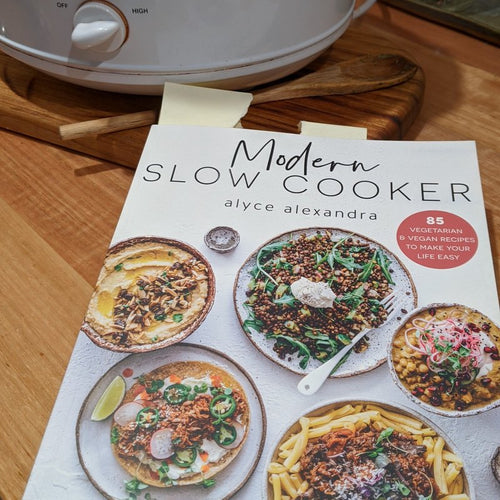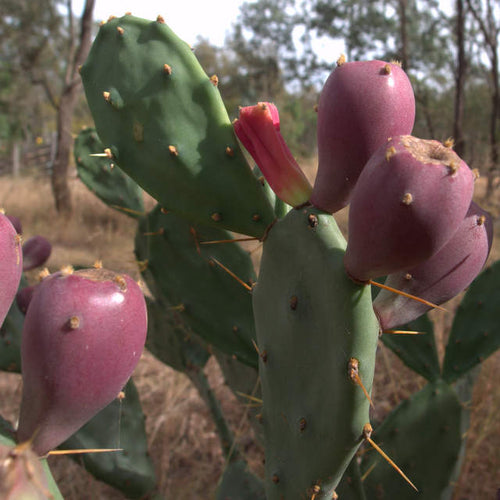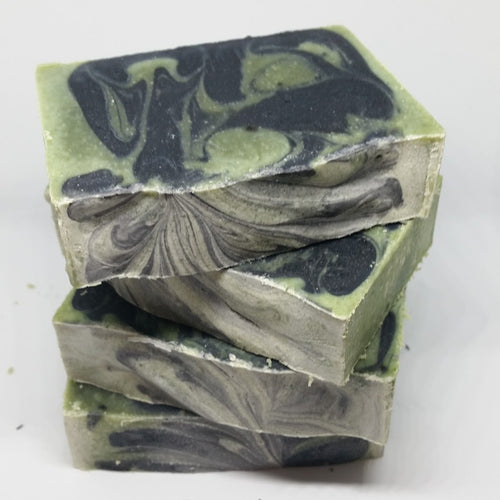Swallow this - book review
In Joanna Blythman's book "Swallow This", the author has somehow gained access to the food industry's inner circle. She attends trade shows and obtains information about the hidden ingredients in processed food that you will find shocking. The food industry is onto us consumers, they know that we are reading labels and avoiding weird ingredients and anything with a number, so their latest technique is "clean labels". Complex and unnatural ingredients are shown on clean labels with familiar or safe sounding names, such as "yeast extract" or "modified starch" or "beetroot extract", this means its getting even harder to read processed food labels and avoid eating artificial ingredients.
Sweet
Describes the sugar lobby's attempts to hide the reality of sugar, if anyone is still in doubt about sugar, the fact that the sugar industry is covering up research findings has to be a clue that they know something is wrong. And don't think that artificial sweeteners are any safer
While it is now generally acknowledged that saturated fats are the healthier fats, liquid polyunsaturated fats are cheaper for food processes to use. They are not stable at high temperatures, so other chemicals are added - these are "processing aids" and not declared as ingredients.
Flavoured
Flavours can be artificial or "natural", with the artificial flavourings being either nature identical or with a chemical structure that is not found in nature. Even the "natural" flavours can be "from the named source", "from the named fruit", or "with other natural flavourings", none of which needs to be declared on the label. These flavours can be modified, enhanced and processed to be very different from the flavour chemicals found in the original food. Food processes are trying to come up with ways to include flavours without having to call them "flavours", to avoid the scrutiny of careful label readers.
Coloured
The problem with processing food is that is often looses some of its natural vibrant colour when its frozen or heated for long periods. The food industry uses added colouring agents to trick us into thinking that processed food is fresher and tastier than it really is. Since artificial colours were shown to cause behaviour problems in children in 1990s, food manufacturers have started swapping artificial colours for natural colours (in the UK anyway), however the definition of "natural" is owned by the industry and they use it to their advantage. Even more worrying is a trend towards using "colouring foods" which do not have to be declared directly on the label as colouring agents.
Watery
Pumping meat and other processed food full of water is a age-old trick to cheaply increase the weight of the product. The catch now is that the food industry has developed binders and other chemicals to keep the water in the food. The giveaway is the weird texture of these foods, the slipperiness and gumminess is a result of all that water and gelling agent. Many of these ingredients are classed as 'processing aids' and therefore do not appear on the label. This includes phosphates, which conveniently also make the meat or seafood seem fresher for longer.
Starchy
Modified starch sounds pretty innocuous, however, when you consider that starch can be modified by such methods as processing with acids, bleaches, enzymes, heating, drying, oxidation, cross-linking with fats, conversion to esters or ethers, bonding with phosphates, it becomes a very broad term that covers a multitude of actual products. The key point is that starch is cheap and has many properties that will cover up cheap and low quality ingredients. If you see modified starch on a label, it is a clue that the food processor has skimped on other ingredients.
Tricky - enzymes
Food manufacturers are using enzymes in the production of foods such as breads, cheeses and fruit purees to speed up processing. Enzymes are also used to recover blood and meat from carcasses to be used in canned soup. They are also used to tenderise meat from older animals. Once again, enzymes are considered processing aids and will generally not appear on the label. This is another case of an ingredient used as a shortcut to cover up poor quality ingredients and processing. Unfortunately without labeling, we don't even know the enzyme is in our food, let alone whether is is natural, or produced from genetically engineered bacteria or chemically. Even worse, enzymes are considered natural ingredients so are not tested or regulated before being added to our food!
Old
The aim of food manufacturers is to extend shelf-life of food for as long as possible. This is why preservatives are needed, however most of us know to look out for preservatives and while the food industry have done their best to justify the use of preservatives, they are looking for safer-sounding alternatives. This includes changing the atmosphere inside packaging (ever wondered how those wraps can stay "fresh" for so long in the pantry?), pre-washing vegetables in chemicals to inhibit bacteria, using 'edible coating technologies' and films, enzymes that extend "sensory shelf life". And the newest technology is extracts from herbs such as rosemary, thyme and garlic, which sound very safe, but there are doubts within the industry that they will actual preserve food as well as the food industry have come to expect! If its not the chemicals, it will be the food poisoning that makes us sick instead.
Packed
You won't believe this, but there are also chemicals used in the packaging of food, for example to provide an ;anti-fog' effect, and none of these appear on the label. You've heard of Bisphenol A, an additive in plastic, the latest issue is with nanoparticles, which are used to decrease the permeability of plastics. Its probably non surprise that these nanoparticles end up in the food and we have no idea what sort of damage them do. Read more about that here.
OK so I know some of you are thinking I'm a paranoid nutter that avoids all food (what did Michelle Bridges call us? Freaks?). I know its impossible to avoid all processed foods, but if you cook as much as possible from scratch, you can avoid a great deal of these hidden chemicals. Its certainly made me reconsider certain foods that I previously considered relatively safe (such as salted potato chips - what is in the oil? and anything with modified starch or yeast extract). Processed foods were never "good" to eat compared to real food, and this just gives me more reason not to eat them.
If you need any tips on eating real food, here's a link to all my posts on real food. And there's an Amazon affiliate link to the book "Swallow This" below if you want to know all the details.
What do you think? Do you avoid processed foods? Is it worth the effort?
I've taken key points from each chapter in the book, however there is so much detail, if you are interested in this subject I recommend you read the book yourself. It is written from a UK and EU perspective, I can only imagine that the situation in Australia and New Zealand is similar and in the US probably even worse.
Sweet
Describes the sugar lobby's attempts to hide the reality of sugar, if anyone is still in doubt about sugar, the fact that the sugar industry is covering up research findings has to be a clue that they know something is wrong. And don't think that artificial sweeteners are any safer
"With sugar, as with everything else in life, we can't have our cake and eat it too. However you try to dess up and repackage it, sugar is bad news, and candidates to replace it, no better."Oily
While it is now generally acknowledged that saturated fats are the healthier fats, liquid polyunsaturated fats are cheaper for food processes to use. They are not stable at high temperatures, so other chemicals are added - these are "processing aids" and not declared as ingredients.
Flavoured
Flavours can be artificial or "natural", with the artificial flavourings being either nature identical or with a chemical structure that is not found in nature. Even the "natural" flavours can be "from the named source", "from the named fruit", or "with other natural flavourings", none of which needs to be declared on the label. These flavours can be modified, enhanced and processed to be very different from the flavour chemicals found in the original food. Food processes are trying to come up with ways to include flavours without having to call them "flavours", to avoid the scrutiny of careful label readers.
 |
| I tried to find the link for this image that I copied from facebook, I guess its somewhere on cracked.com, I found some other articles but not the link for this image |
The problem with processing food is that is often looses some of its natural vibrant colour when its frozen or heated for long periods. The food industry uses added colouring agents to trick us into thinking that processed food is fresher and tastier than it really is. Since artificial colours were shown to cause behaviour problems in children in 1990s, food manufacturers have started swapping artificial colours for natural colours (in the UK anyway), however the definition of "natural" is owned by the industry and they use it to their advantage. Even more worrying is a trend towards using "colouring foods" which do not have to be declared directly on the label as colouring agents.
"The bottom line here is that the boudary between 'natural colourings' and 'colouring foods' is clear as mud, and exists only in the form of meek industry guidance, not meticulously defined by law"This includes such ambiguous terms as "beetroot extract" and "carrot concentrate", which sound safe, healthy even, but the process used to create these colouring foods may be anything but benign.
Watery
Pumping meat and other processed food full of water is a age-old trick to cheaply increase the weight of the product. The catch now is that the food industry has developed binders and other chemicals to keep the water in the food. The giveaway is the weird texture of these foods, the slipperiness and gumminess is a result of all that water and gelling agent. Many of these ingredients are classed as 'processing aids' and therefore do not appear on the label. This includes phosphates, which conveniently also make the meat or seafood seem fresher for longer.
Starchy
Modified starch sounds pretty innocuous, however, when you consider that starch can be modified by such methods as processing with acids, bleaches, enzymes, heating, drying, oxidation, cross-linking with fats, conversion to esters or ethers, bonding with phosphates, it becomes a very broad term that covers a multitude of actual products. The key point is that starch is cheap and has many properties that will cover up cheap and low quality ingredients. If you see modified starch on a label, it is a clue that the food processor has skimped on other ingredients.
Tricky - enzymes
Food manufacturers are using enzymes in the production of foods such as breads, cheeses and fruit purees to speed up processing. Enzymes are also used to recover blood and meat from carcasses to be used in canned soup. They are also used to tenderise meat from older animals. Once again, enzymes are considered processing aids and will generally not appear on the label. This is another case of an ingredient used as a shortcut to cover up poor quality ingredients and processing. Unfortunately without labeling, we don't even know the enzyme is in our food, let alone whether is is natural, or produced from genetically engineered bacteria or chemically. Even worse, enzymes are considered natural ingredients so are not tested or regulated before being added to our food!
Old
The aim of food manufacturers is to extend shelf-life of food for as long as possible. This is why preservatives are needed, however most of us know to look out for preservatives and while the food industry have done their best to justify the use of preservatives, they are looking for safer-sounding alternatives. This includes changing the atmosphere inside packaging (ever wondered how those wraps can stay "fresh" for so long in the pantry?), pre-washing vegetables in chemicals to inhibit bacteria, using 'edible coating technologies' and films, enzymes that extend "sensory shelf life". And the newest technology is extracts from herbs such as rosemary, thyme and garlic, which sound very safe, but there are doubts within the industry that they will actual preserve food as well as the food industry have come to expect! If its not the chemicals, it will be the food poisoning that makes us sick instead.
Packed
You won't believe this, but there are also chemicals used in the packaging of food, for example to provide an ;anti-fog' effect, and none of these appear on the label. You've heard of Bisphenol A, an additive in plastic, the latest issue is with nanoparticles, which are used to decrease the permeability of plastics. Its probably non surprise that these nanoparticles end up in the food and we have no idea what sort of damage them do. Read more about that here.
OK so I know some of you are thinking I'm a paranoid nutter that avoids all food (what did Michelle Bridges call us? Freaks?). I know its impossible to avoid all processed foods, but if you cook as much as possible from scratch, you can avoid a great deal of these hidden chemicals. Its certainly made me reconsider certain foods that I previously considered relatively safe (such as salted potato chips - what is in the oil? and anything with modified starch or yeast extract). Processed foods were never "good" to eat compared to real food, and this just gives me more reason not to eat them.
If you need any tips on eating real food, here's a link to all my posts on real food. And there's an Amazon affiliate link to the book "Swallow This" below if you want to know all the details.
What do you think? Do you avoid processed foods? Is it worth the effort?






















Leave a comment